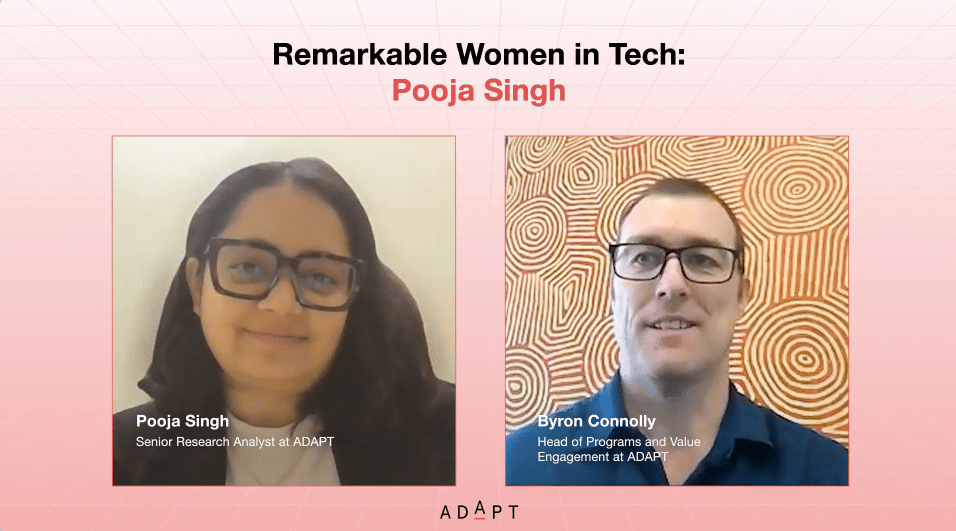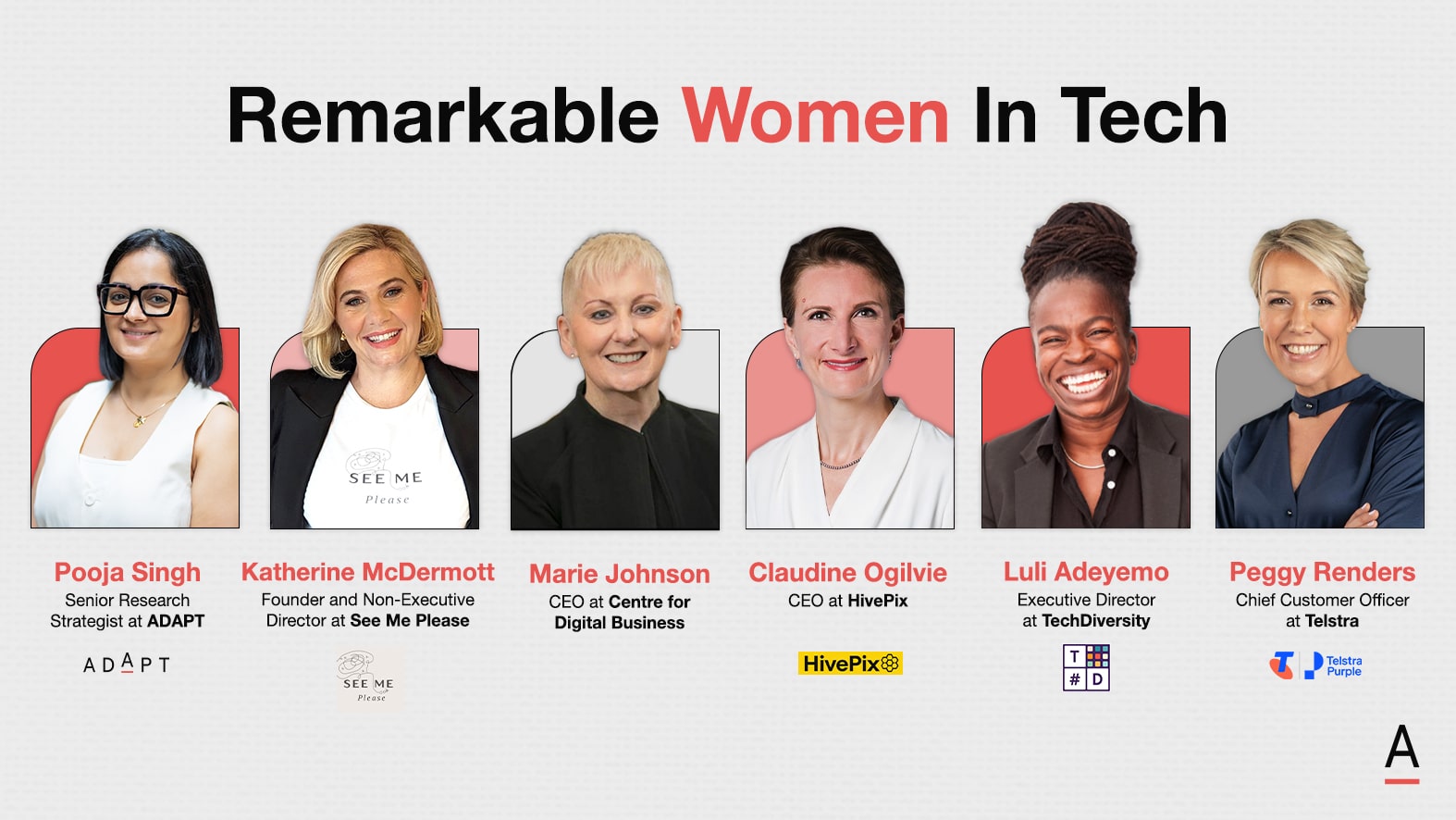In celebration of International Women’s Day, we’re spotlighting the remarkable women forging paths in technology under this year’s theme of “Inspire Inclusion.”
One standout story is that of Pooja Singh, Senior Research Analyst at ADAPT, whose journey is a testament to challenging norms and embracing the tech world with open arms.
Smashing the patriarchy, rethinking gender roles
Pooja was 18 years old when she decided to pursue an IT degree at the Jaypee Institute of Information Technology in Noida, India. It was a bold decision in a patriarchal society that often pigeonholes women as more suited to fields like the arts and humanities.
“I remember there was so much pressure that I created on myself because of the way [India’s] society was [set up]. I wanted to do things that are considered tough, things which are not considered [suitable] for women,” says Pooja.
She specialised in engineering and biotechnology. She is passionate about how technology can impact the way people access and consume healthcare services across a nation of 1.4 billion citizens.
Pooja believes both men and women have been conditioned to believe that they are more suited to particular societal and job roles.
“A lot of these conversations, be it women navigating to arts or men being interested in STEM, I think a lot of it has to do with misconception and the conditioning and roles that have been created for people. You tend to pivot to them because you are given the sense that, ‘this is what good looks like, this is what comfortable looks like, this is what you are meant to be,’” she says.
Pooja also discusses why she doesn’t believe programs that encourage women to pursue careers in IT are not as effective as they could be and what needs to be done about it.
Feeling pressure to prove your worth
ADAPT’s Pooja Singh says that there’s a lot of pressure on women who are working in teams that are male dominated to prove their worth.
“If I am in the room, and we are having a project discussion and I have to present my findings or make a point, I have to work extra hard to make that point. There’s a constant feeling you have that people in the room are not rooting for you,” she says.
Pooja recalls being a little over a year at an organisation and one day receiving a call from a male team leader for her yearly performance review. She was told he work was fine but there were issues with her behaviour.
“I was taken aback because my scores in terms of collaboration, helping people in my team – they were really high,” she says.
Pooja questioned why men in the senior leadership team felt this way about her behaviour. This issue stemmed from her not being viewed as an active member of a ‘bro culture’ of initiating fun conversations and laughing at jokes. Consequently, Pooja was considered to have an attitude problem.
“A lot of these instances have happened and that’s where you put a lot of pressure on yourself because you feel that you are always in a room where people are wanting for you to make that mistake.”
Women need to stop apologising
A female leader once told Pooja Singh that women need to stop apologising for everything – for being too demanding and upfront.
“This is a social construct that we live in, and I singlehandedly cannot change it. The key is to seek out people who can enable you,” she says.
Pooja says in any organisation, there will be people who can’t accept that women can lead.
“But there will be certain people who do, and you have to identify those promoters. This an approach that I have learnt from women/ men mentors. Look at the people who are your promoters and grow with them,” she says.
She advises women in IT to not spend too much admiring the problem of gender imbalance.
“Go to the solution. What can you do? How can you change and get into the action more quickly.”
Finally, Pooja discusses the work she is doing to assist women in underserved communities across India. Her latest gig focuses on destigmatising taboos around women’s sexual and reproductive health across the Indian community.
As we celebrate International Women’s Day, Pooja Singh’s story reminds us of the strides we’ve made and the journey still ahead.
It’s about recognising the contributions of women like Pooja, who challenge the status quo and use their platform to advocate for a more inclusive and equitable tech industry.
Let’s make tech a space where everyone, regardless of gender, can thrive and make their mark.
Watch other Remarkable Women in Tech – Peggy Renders, Katie McDermott, Luli Adeyemo, Claudine Ogilvie, and Marie Johnson’s full interviews or our compilation of their stories.































